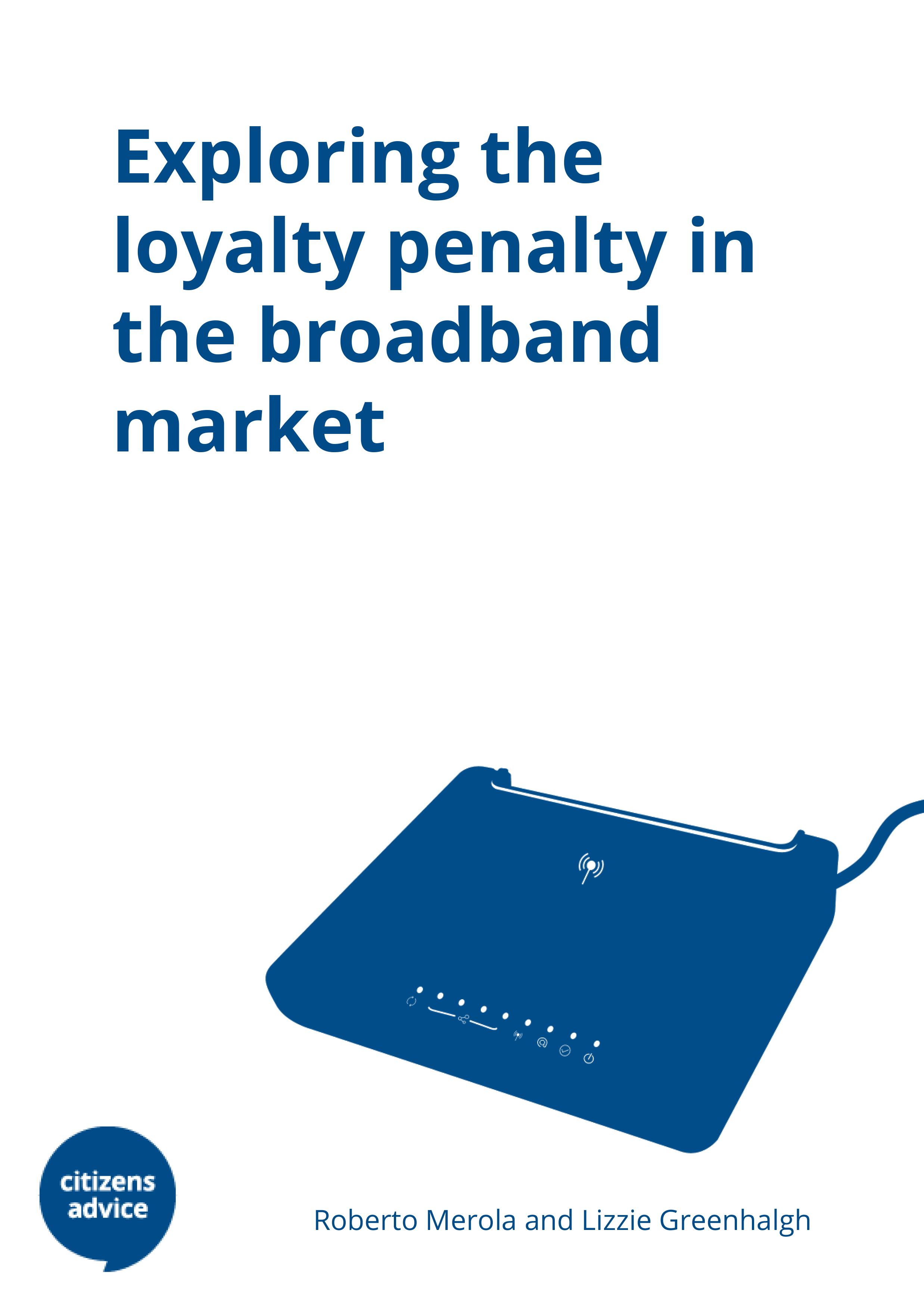Exploring the loyalty penalty in the broadband market
Exploring the loyalty penalty in the broadband market report 615 KB
Broadband is an essential service for many consumers. 86% of adults in the UK have access to the internet, and many rely on broadband to access key services and to shop for household essentials. However, many broadband customers receive a poor service and then struggle to access compensation.
In 2016, Citizens Advice supported more than 2,000 clients with problems with broadband contracts. In the same year, our Consumer Helpline also handled more than 5,000 complaints about internet service providers. Our data provides us with unique insight into consumer detriment, which our previous research has estimated to be £4.2 billion per year in telecommunication markets. This is the highest of any consumer market.

This policy note focuses on how broadband providers often charge customers a ‘loyalty penalty’. Citizens Advice is currently exploring how long-standing customers across essential markets, including energy, insurance, banking and telecoms, are frequently placed on uncompetitive deals, paying far more for a service than a newer customer would. While we typically think of loyalty as a positive trait, our analysis of the cheapest basic broadband deals shows:
Broadband customers face an average loyalty penalty of £113 for every year they stay in their contracts after their initial contract period ends, a 43% increase on the initial price. Proportionally, this penalty is far higher than in other sectors, such as energy, and reflects a recent shift in the market. More than 9 in 10 (96%) consumers think this penalty is unfair.
The cost of broadband after the initial contract period is rarely included in advertising and is often hard to locate on providers’ websites. Over a third of customers (35%) say it was not straightforward to find a good deal in essential markets. 35% of customers are unaware of the loyalty penalty.
Vulnerable customers are at a greater risk of experiencing the loyalty penalty. In particular, older and lower income groups are more likely to be loyal. For example, customers aged 65 and over are more than twice as likely than younger customers to have been in the same contract for over 10 years.
This note highlights two opportunities to redress the balance in favour of loyal customers. First, the ASA should require providers to clearly state the cost of broadband after the minimum period alongside the initial price. Price comparison sites should also make it easier to understand this increase. Secondly, Ofcom should monitor consumer detriment and take further action if necessary, such as requiring providers to use smart alerts or introducing price protections for vulnerable customers.